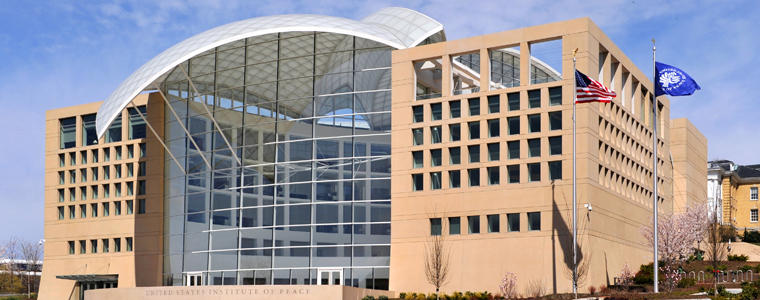USIP President Richard H. Solomon shares his views on the transitions to civilian-led efforts in Iraq and Afghanistan after a decade of military presence.

USIP President Richard H. Solomon shares his views on the transitions to civilian-led efforts in Iraq and Afghanistan after a decade of military presence.
The transitions from military to civilian leadership underway in Iraq and Afghanistan are unprecedented. How is this affecting how U.S. civilian agencies operate?
As Secretary of State Hillary Rodham Clinton said, our nation’s navigation of the international environment must take into account the world as it is, not as it used to be. The civilian transition challenges are enormous, and the resources that the State Department and the other civilian actors need must be adequate for the large and dangerous job they are being called to perform in complex environments—non-state actors, organized crime, terrorists, counterinsurgencies, transnational threats.
I think much will come down to the training and equipping of the local security sectors and capacities for rule of law and conflict mitigation. As a nation we can always do more, but in terms of what we have been able to accomplish in the post-9/11 era, I think we have come a long way. I believe that our nation has a clear responsibility to acknowledge the service of civilians who have served since 9/11 and in the many decades before when U.S. government civilians acted to prevent and resolve conflict. They continue to put themselves in harm's way in the service of our country. The unique capabilities they apply on the nation’s behalf are extraordinary, surmounting challenging operational and security conditions with rare skill, ingenuity and determination as they deal with these threats and challenges.
What is USIP’s role in the civilian transitions going forward?
USIP’s job is to support the State Department and USAID and other civilian actors with responsive training, operations and analysis. Undersecretary of State Maria Otero in a recent speech recognizing Foreign Affairs Day stated that one of our foreign policy objectives should be to help prevent conflict or mitigate its occurrence. We’re in it together. USIP works to prevent conflict, in support of and with State, USAID, Defense Department colleagues, and other U.S. government (USG) agencies; we support Secretary Clinton’s goals of ensuring America’s civilian power is deployed as effectively as possible. At USIP we are placing a premium on strengthening local capacities to prevent, manage and resolve conflicts peacefully and the agile and efficient use of our personnel, understanding of conflict drivers, and integration of input from actors all across the response community. Sustainable peacebuilding will require these capabilities to be developed across the local, provincial and national levels as well as both inside government, and outside of it among civil society, community leaders and marginalized groups and groups at risk. USIP is continuing its mission to support U.S. foreign policy by training and developing capacity in USG personnel, and contributing research and analysis which supports our national security objectives.
Describe the shortfalls that USIP is helping to ameliorate.
An important part of the current transition operations environments is supporting the State Department, USAID and nongovernmental organizations through interaction of our expert peacebuilders and in-country staff assistance in Iraq and Afghanistan. Emphasis is placed on all the interconnected elements of peacebuilding but especially rule of law, religion, media, gender, civil-military, civil society and economic dimensions that shape the conflict environment in peacebuilding terms. These types of support greatly enhance the interagency context of post-conflict peace and stability operations and are coordinated closely with the State and Defense departments, USAID, and other government and nongovernmental partners.
Discuss how the Institute is strengthening partnerships with interagency partners, multinational forces and NGOs to enable coordinated action.
Strong partnerships among government, military and nongovernmental organizations are imperative in today’s post-conflict civilian transitions. That is a prime lesson learned since 9/11. State Department leadership is particularly vital to interagency and multinational partners. Along with working closely with diplomatic personnel, the Institute continually works to help civilian agencies better understand the civilian-military’s operational environment and how they might best engage in peacebuilding and training. USIP is also involved in the development and review of joint and interagency doctrine to ensure the relationships and operational processes are appropriately incorporated into planning for peace and stability operations. We are especially focusing efforts on improvements to the realism and relevance of gaming models and simulations. During this month, in which the Department of State celebrated Foreign Affairs Day and honored the sacrifice of its personnel, USIP recognizes that our nation’s diplomatic personnel are on the front lines, mediating and resolving conflict, and we are proud to be a partner with them in this effort.